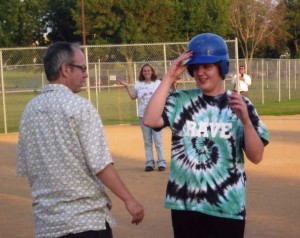#78 – Dick Bernard: Back to school with the President
Under ordinary circumstances I may not have heard that President Obama was going to give a televised talk to America’s school children at 11 a.m. today. I’m long retired with no direct ties to public schools.
But these are no ordinary circumstances. Last Friday morning, I got an e-mail, later withdrawn, in which the sender wanted to alert one of my mailing lists about her complaint about the President of the United States wanting to communicate with children, including her own, about their upcoming school year. The speech was scheduled for today, September 8. At the time of the e-mail, I had no context whatsoever.
(The entire speech will likely be archived at the White House website www.whitehouse.gov for anyone who is interested.)
The subsequent days were inundated with rhetoric. For most school districts in my state, today is the first day of the school year. It is an open guess as to what percent of the nation’s tens of millions of students will be allowed to see the talk live today, if at all. When it comes to freedom of speech, apparently the President of the United States is, for some, off-limits, at least according to some who wish to shield their children from his thoughts (and in the process deprive the vast majority of the opportunity to hear what he has to say.)
I spent an entire career in public education, so I know a bit about the reality of the public schools.
A career public elementary school teacher, now retired several years, commented on the general situation on Saturday: “When I was teaching I would have been so happy to have the President reinforce my job by speaking to students.” As to disrupting regular events on the first day of school, she said “The first day of school was always full of twists and turns. Some kids haven’t slept all night because they are scared, some wish they were back home, some are worrying about their bus number, some wish they had a different teacher, some little ones are crying, some are hot (no air conditioning) some are very excited for a new year, etc. I think it would be reassuring to have the President speak to them.”
Of course, none of this matters to those who wish to shut down the opportunity for the President to communicate a positive lesson.
Last Friday, after the e-mail brought the matter to my attention, I wrote to the heads of all of the major public education organizations in Minnesota, saying this: “What I see is a flagrant adult example of bullying behavior, and you can rest assured that if the organizers of this nationwide protest feel they were successful in this campaign, you can anticipate much more aggressive moves on other fronts as time goes on. This is not a constituency that will be satisfied with half-a-loaf. Any sign of weakness you and your members show will be exploited and the problem will get much worse.
It is very ironic to me that this same President Obama, who some people apparently fear will influence their kids, is the same President who not-so-liberal Bill O’Reilly of Fox News wrote about in a cover story in the August 9, 2009, Parade Magazine, included in the St. Paul Pioneer press. The article, very positive, is entitled “What Children can learn from President Obama”. Read it. It’s all very positive…about President Obama. But now some folks don’t want their children to hear [that same President] speak, and are willing to sabotage the opportunities of other children to hear this message.”
What we are seeing goes far beyond mere hypocrisy.
This story won’t end with today.
Now to watch the President’s talk to America’s students….
UPDATE: 11:23 A.M.
The ones who needed to watch this speech – the ones who campaigned against its being shown – probably will refuse to tune it in. I hope they change their mind.






